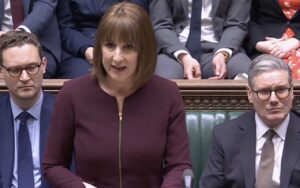Cyber security is more important than ever and is the main tool that protects individuals, businesses, organizations, and governments from a broad range of digital threats, cyberattacks, financial losses, and data breaches.
Companies employ a range of highly sophisticated cybersecurity systems to safeguard sensitive information, run their day-to-day operations, and foster trust between them and their customers.
The question being asked here is, do companies invest enough in cyber security? Let’s dive straight in to find out.
Do companies invest enough in cyber security?
According to recent reports, and despite challenging economic times, companies have increased how much they typically spend each year on cyber security measures to protect their customers. However, other reports suggest that some companies still aren’t spending enough.
Inadequate spending on cyber security measures can lead to vulnerabilities and potential data breaches, but the high cost of cyber security and the poor ROI (return on investment) makes it difficult for companies to justify spending more on cyber security, especially when prices for these services continue to rise, which puts customers at risk.
There is increased spending on cyber security, but experts say that it’s still not enough and that it could lead to a rise in the number of successful cyber attacks that are carried out. The number of cyber attacks in recent years highlights the need for companies to spend more on enhancing their robust cyber security measures.
What cybersecurity measures do companies use to protect people?
These days, many of the world’s most successful online businesses employ a range of cutting-edge cybersecurity measures to enhance the protection of their customers. Take the iGaming industry, for example.
Today’s most successful online sports betting websites or online casinos with slots and other classic table & card games, the market-leading operators use various cutting-edge technologies to enhance the protection of their registered members.
Here are several ways the iGaming industry’s most reputable companies protect users:
iGaming websites are protected by 128-bit or higher SSL (Secure Socket Layer) and TLS (Transport Layer Security) cryptographic encryption technology, preventing cybercriminals from obtaining your PII (personally identifiable information), preferred online payment method details, transactions, money, and other sensitive information
Today’s most trusted operators fully comply with local and international AML (Anti-Money Laundering) policies and have top-notch data protection and privacy policies in place. They are also transparent in their funding and day-to-day operations
They will only accept the most secure online payment processing gateways, such as Visa, PayPal, Trustly, Apple Pay, Paysafecard, and so on
They also have secure mobile applications and various other secure login features, such as 2FA (Two-Factor Authentication) and facial/voice/fingerprint recognition features.
Players can also switch on things like one-time passcodes when confirming deposits, and they are encouraged to create strong passwords with a mixture of letters, numbers, and symbols.
They also encourage users to switch on automatic software updates to ensure they always have the latest version, and they use firewalls to prevent a range of cyber threats. Artificial intelligence is also used in various ways to enhance our security and privacy.
Final thoughts
Although companies are spending more money on enhancing customer cyber security, it’s also important that you implement your own basic security measures.
For example, use anti-virus software to enhance your online protection, and, where possible, use VPNs (virtual private networks) to connect to the internet. Never save your login details (username and password) on any of your accounts, especially when using a shared device, and always be aware of scams.
Also, be careful when using public Wi-Fi and who you chat with online by never revealing too much information about yourself.
Finally, be cautious about links, attachments, files, and programs before clicking/tapping them to open them, and always make sure that anything you decide to open is from a legitimate/verified source.










